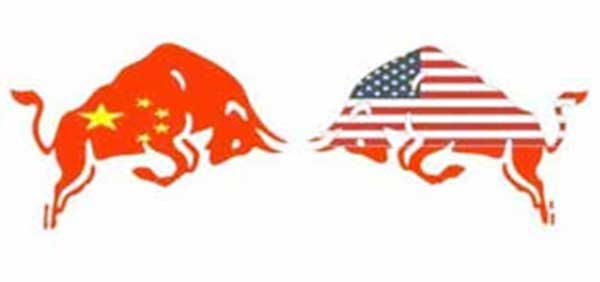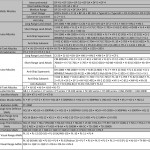
Sino-US confrontation (Photo courtesy: Photo: www.wyzwxk.com)
The article is presenting what the Chinese are writings in their Media
— Translation by Hemant Adlakha
Source: http://www.ftchinese.com/story/001089199#s=d
FTChinese.com
Date: September 29, 2020-09-29
Author: XU JIN徐瑾Xú Jǐn
Xu Jin runs the Blog: 《徐瑾经济人》 “Xu Jin Economist” (ID: econhomo)
Summary
Currently changing Sino-US relations best reflect shift from Wilsonian cooperation to Hobbesian confrontation; from liberal engagement to realist containment. How do these changes best serve China’s international strategic interests?
“The United States will continue to obstruct China’s growth; will restrict the number of students from the PRC studying in the US universities in subjects directly related to China’s weapons development programme; and stifle the voices suggesting there should be more cooperation between China and the US…”
The citation above is not from what is being written today, it is from the reprint edition of a book in 2014 (the book was originally published in 2001). The book The Tragedy of Great Power Politics was authored by John Mearsheimer and is considered to be based on academic analysis and not sectarian party politics. Professor Mearsheimer holds the Wendell Pad Harrison Distinguished Chair in Political Science at the University of Chicago and is a specialist in international relations.
He could predict so accurately perhaps because of his realist perspective.
I
Back then, Trump was nowhere to be seen on the US political scene, nor had there been even distant signs of a US-China trade war. China’s peaceful rise was still the global mainstream narrative.
More importantly, what is mentioned above was only a part of the book. In the Chinese edition of the book, in the author’s preface, Mearsheimer addressed his Chinese readers by telling them that one of the argument that the book tries to debate is “the international system is a sinister and cruel arena where countries have no choice but to compete for power. Even a country that is content with living in peace will be accused of participating in a ruthless competition for power.”
This view could also be called “aggressive realist theory.” According to this theory, when the international society is called an anarchic society, different countries know that they operate in a self-help system and the best way is to become the most powerful country in the system, “the more strong a country than its rival power, the less and less chances of the country facing survival threat from its rival.”
As a result of this kind of competition, great power politics is doomed to be tragic.
II
The logical conclusion of such a theory is fierce Sino-US conflict is inevitable. And for this very reason, the book would not only draw instant attention of China’s leftist scholars but they (China’s leftists) will take Mearsheimer’s book as key to understanding the transformation in the US strategic thinking (towards China).
The changes in Sino-US relations in the recent years have given birth to multiple new theories. For example, the American scholar Graham Allison has put forward the concept of Thucydides Trap. To which, Mearsheimer would probably shrug and say: “I had already told you so.” He reckoned China after all cannot rise peacefully. Remember, most of his conclusions today had been written way back in 2001 in his magnum opus, The Tragedy of Great Power Politics.
Mearsheimer’s fundamental theoretical premise is, since international society in essence is an anarchic society and since there is no world government bigger than a sovereign state, international relations are highly competitive and power is the core of international politics, just as currency is to economy. The primary goal of a big power is to survive, for which it seeks more power. Hence, countries become potential competitors to each other. So, big nations hope to gain power at the expense of their opponents.
In the process, if there is more than one big power, such a situation will often lead to piled up rivalry and even lead to war. The tragic nature of this competition among big powers has its origins in the existing international structure and is in the least related to whether the great powers themselves pursue freedom or whether they are good or bad.
Obviously, Mearsheimer’s thesis compares international relations to a Hobbesian world – where everyone opposes everyone. This pessimistic perspective often has insights and a sense of realism totally absent in idealism.
III
Real is real, theory is theory.
This liberal ideological wave touched its peak at the time of the disintegration of the Soviet Union and ended in Francis Fukuyama’s The End of History published in 1992. The United States at the time, having finally bid farewell to the 1970s setbacks, appeared to be most powerful and most confident. It is precisely for this reason that since the days of the Clinton administration in the 1990s, the US policy towards China has always been a policy of engagement. This is precisely the reason why the US even allowed China’s entry into the WTO and thus enabled Chinese economy into the fast lane of globalization. They [the Americans] not only hoped to see China finally integrate into the world led by the United States, but also believed that China’s development trajectory will eventually be on the expected lines.
Did the world really become peaceful? Certainly not, and the US war continues. No doubt, it was Fukuyama’s book which aroused Mearsheimer’s interest. He was least convinced and kept his head buried in sand like an “Ostrich” and wrote The Tragedy of Great Power Politics. With the return of local hegemons such as Russia and China, he not only foresaw that the US dominance would not last but also asserted that peaceful rise of China was impossible. Furthermore, Mearsheimer also contended that it was not in the national interest of the United States to directly go against war with China. Instead what best served the US interests was to contain and not engage with China.
Moreover, Mearsheimer held the view that the natural effect of the rise of the US on its competitors – including China – was they ought to learn from the United States. “How can we expect China and the US to behave differently? Aren’t the Chinese, compared with us Americans, more principled, more ethical? Aren’t the Chinese less nationalistic? Aren’t they less bothered about the survival of their nation? Since answer to all the questions is a definite no, so China should be following the basic logic of realism and strive to become regional Asian hegemon,” Mearsheimer wrote.
He further believed that China might use Confucianism to express its pursuit for peace, or perhaps be guided by Deng Xiaoping’s low-key guide “hide one’s capabilities and bide one’s time.” However, the growing national strength of China was bound to trigger a change in the regional power equations and make the US as well as China’s neighbours feel uncomfortable.
V
In a sense, Mearsheimer’s foresight is self-evident in the context of transforming Sino-US relations. The moot point is what does the future hold? Optimism versus pessimism; Wilson’s or Hobbes’ world; war or peace – which of the two countries has a chance of winning? In China’s investment circles, there is a saying “pessimists are always right and optimists always win.” On the other hand, though international politics indeed is filled with naked display of power competition, but the role of ideas is also huge. Ideas or concepts are powerful forces that shape our imagination and judgement about the world.
Looking back at the Paris Peace Conference a hundred years ago, the US president Wilson brought his 14-point programme and tried to destroy the old world’s traditional balance of power diplomacy that valued power and advocated the new diplomacy of equality between big and small nations. This idealistic position not only encountered ridicule and opposition from the European peers, but its failure led the Asian late comers such as China and Japan feel the hypocrisy of the West. So much so that the idea of the League of Nations, which was advocated by Wilson himself, failed to get the support by the United States itself. In any case, Wilson was insignificant in the domestic US politics.
It seems Wilson’s idea came too early and also faded away too fast. It was way ahead of his time. However, the power of ideas lies in perseverance, and seeds of Wilson’s ideas had been sown. Power diplomacy may survive for some time, but when the violent results of the WWII made people realize its consequences, Wilson’s thinking revived. The post WWII world pattern, from international institutions such as the World Bank to collective security alliances such as NATO to American liberalism – all were largely influenced by Wilson-ism. Even a realist diplomatic strategist like Kissinger had to face the reality that the American people were infected by Wilson-ism while complaining about Wilson’s failure.
This also explains why the real world is not a vacuum but a world composed of a mixture of realism and idealism. In which direction the world will move, depends on strength and reality, as also on philosophy and the path we are going to choose. The tragic nature of big power politics often rests in each other’s inability to understand each other’s intentions, and because of the pressure to survive the big powers exaggerate their rival power’s attempts to compete. Whereas the truth is, at any given point in time, more and more exchanges and communication are always necessary “to clarify the boundary between two sides and eliminate the need for gunfire.”
Currently changing Sino-US policies are manifested in the shift from Wilsonian cooperation towards Hobbesian confrontation, from liberal engagement to realist containment. To think from the other way round, what is ideal for China’s national interest is obviously to bring back on the track the derailed Sino-US relations, i.e., pulling back from Hobbesianism to Wilsonism, and turning containment into cooperation.
The future of Sino-US relations always depends on the choices of leaders and people of the two countries. Standing at the crossroads, the key to policy changes lies in the changes on the expected lines. The expected outcome of pursuing policy of engaging China is that the Sino-US cooperation will increase, while the US policy of containment of China stems from the intensification of Sino-US confrontation.
When the anticipation is that the US is going to further intensify confrontation, what is China to do to steer the course away from confrontation to cooperation?





Very good article. I don’t find much difference between power politics in a village and in international politics. In a village, whenever a family rises economically and aspires to rise socially, that family has to encounter many hurdles and often has to confront the existing elites of the village. In international politics, if international institutions are weak, then this premise holds this view better.